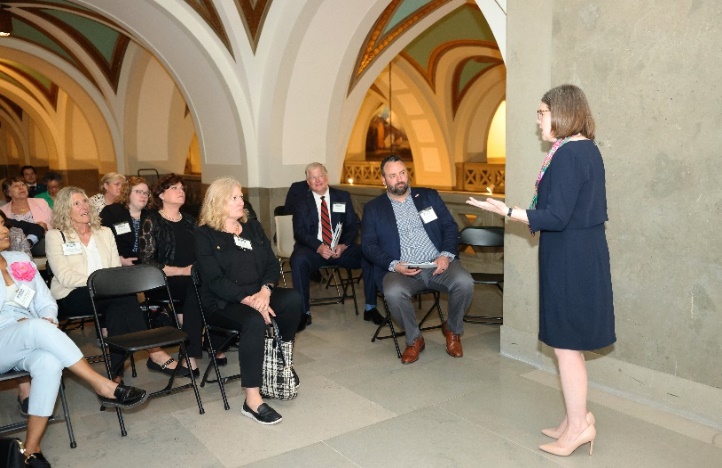Down to the Home Stretch
We are down to the home stretch of this year’s regular legislative session, which ends May 16. With just two weeks remaining, lawmakers are working swiftly to move bills we believe will make Missouri an even better place to live, work and raise a family to the governor’s desk. On April 24, the governor signed two pieces of legislation into law. One focused on electoral procedures and one on tort reform. Senate Bill 22 reworks how ballot summary statements that are challenged by the courts are written to prevent judges from arbitrarily rewording ballot summaries sent to voters. Senate Bill 47 aims to promote fairness in Missouri’s legal system by amending Supreme Court Ruling 52.08 relating to class actions. You can read the governor’s press release regarding SB 22 and 47 at governor.mo.gov/press-releases. On April 29, House Bill 737, legislation that strengthens protections for foster children, was truly agreed and finally passed. This bill ensures federal benefits intended for foster children are used for their unmet needs and not absorbed by the state. This bill now heads to the governor’s desk for his signature. On May 1, Senate Bill 98, legislation creating the offense of financial institution accounts fraud to better protect Missourians from frauds and scams, was truly agreed and finally passed. Also heading to the governor’s desk is House Bill 169. This legislation, which raises the speed limit for cotton trailers on non-interstate Missouri highways from 40 miles per hour to 65, was taken up for third reading and final passage on May 1. This bill also removes the restriction that cotton trailers must be used solely for transporting cotton. Passing the Fiscal Year 2026 State Operating Budget Lawmakers have also been working tirelessly to pass bills that will comprise the state’s operating budget for fiscal year 2026. Drafting and passing a balanced budget for the upcoming fiscal year is the General Assembly’s only constitutionally mandated duty each session. We worked late into the night April 29, passed 13 spending bills, and sent our version of the budget back to the Missouri House of Representatives for consideration, which the House voted to reject and deliberate. There are many differences between the $48 billion House-approved version of the budget and the Senate’s $49.5 billion proposed spending plan, including $300 million more in the Senate’s version for K-12 public education. The Senate also voted to accept the governor’s request of $107 million for childcare subsidies. A bipartisan conference committee, made up of members from both chambers, must now work out the differences between the two drafts and compromise on a final state spending plan by the May 9 constitutional deadline. Government Efficiency Committee On April 28, the Senate Government Efficiency Committee convened for the last time this session to discuss, hear testimony and vote on House Bill 520. This bill, which the committee passed unanimously, allows state departments to send important official notices, traditionally sent by certified mail, electronically or by first-class mail. This legislation seeks to improve efficiency and give Missouri citizens and state departments a faster, more reliable and affordable means of communicating. With the ever-rising costs of postage, HB 520 could save the state up to $1 million a year. Capitol Photos 
Senator Coleman talks with business and civic leaders at the Capitol as part of Greater St. Louis Day. 
| 

